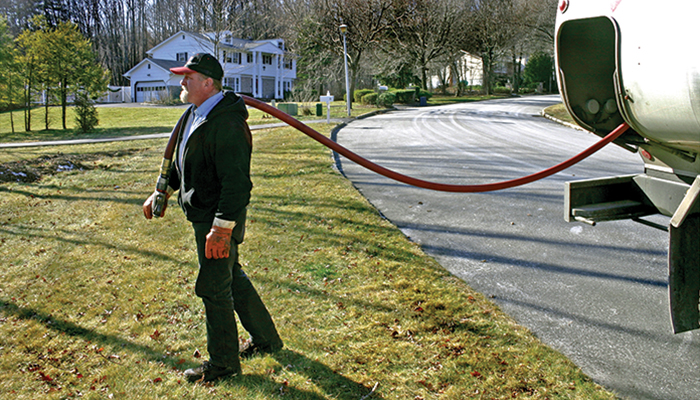Two events are approaching that should make biodiesel top of mind for fuel marketers, including those doing business in the heating oil market in the Northeast.
One is updated fuel obligations in the Renewable Fuel Standard (RFS), expected later this fall. The other is winter.
Here’s a look at the regulatory environment, as well as cold weather fuel tips that will help your operation be a success this winter.
Regulations Update
The RFS gets a lot of attention (for good reason) and is covered elsewhere in this issue, so let’s focus on other policies that have a big effect on Oil & Energy readers. There is growing interest in biodiesel-related regulations in the Northeast.
A prime example is New York, the top state in terms of residential heating oil consumption. This past July, Nassau, Suffolk and Westchester counties joined New York City in requiring that heating oil contain at least 5 percent biodiesel, or a B5 blend. The blended product is known as Bioheat® fuel, and now 70 percent of New York state’s heating oil market has a B5 requirement.
The law builds upon New York City efforts, which started with a B2 mandate in 2012. That will increase to 10 percent in 2025, 15 percent in 2030 and 20 percent in 2034. This trend is occurring elsewhere too. Rhode Island has a B5 usage requirement, and Connecticut and Vermont have passed bills that say if bordering states pass Bioheat fuel laws, they will too. Also, Massachusetts now provides Alternative Energy Credits to sellers of B10 or higher Bioheat fuel (though not if it’s soy-based).
A major reason public officials are supporting biodiesel is its positive environmental profile. That’s also why heating oil dealers are increasingly switching to Bioheat fuel, especially as a counter to growing natural gas usage. Biodiesel allows them to show customers that they are moving toward an environmentally friendly focus.
Another important policy was the federal government’s 2017 decision to impose duties on biodiesel imported from Argentina and Indonesia in response to subsidized biodiesel being shipped to the U.S. below U.S. market values. This decision was good for American companies, because it leveled the playing field against subsidized foreign product. But it did raise questions in the Northeast, where Argentinian-made biodiesel had become popular in recent years.
Some heating oil companies worried that biodiesel supplies and prices would suffer. But U.S. producers met demand, and did so at good price points, in the 2017-18 winter.
Cold Weather Usage
The duties also touch on an important cold-weather issue with biodiesel. Because subsidized Argentinian biodiesel is made largely from soybean oil, Northeast markets have been hearing that soy-based biodiesel is better than biodiesel made from other feedstocks. That is a myth.
High-quality biodiesel can be made from a variety of feedstocks. Feedstock flexibility has a variety of benefits, including:
- Predictable pricing and availability. When prices rise or supply is short on a certain feedstock, a multi-feedstock refinery can switch to an alternative and not negatively affect the finished biodiesel.
- Capturing the best properties from different feedstocks. High-tech producers can combine fatty acids from various feedstocks — kind of like ingredients in a recipe — to create a fuel with the properties a customer wants.
- Lower carbon intensity. Feedstock flexibility allows producers to use feedstocks with lower carbon intensity scores, which is better for the environment, while maintaining strong performance.
Distilled biodiesel can offer even more advantages. For one, it enhances a biodiesel producer’s ability to use multiple feedstocks. It also has advanced cold weather properties compared to that of undistilled biodiesel.
Distillation is a purification process that does an excellent job at removing minor components that can contribute to filter plugging. The type and quantity of minor components depend in part on feedstock, so by doing such a good job at removing them, distillation gives a producer more freedom with feedstocks.
Distillation has several advantages over traditionally purified biodiesel, including superior cold weather performance compared to undistilled biodiesel, being a purer product and, thanks to feedstock flexibility, the potential for lower carbon intensity scores.
REG takes a feedstock flexible approach at many of its biorefineries and produces distilled biodiesel. For more information, visit www.regi.com/products-services.


